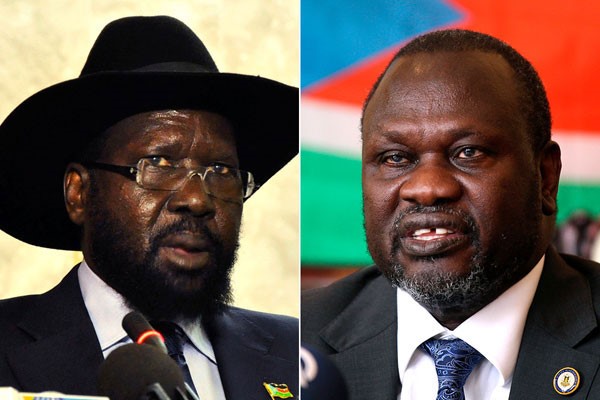By Bida Elly David
South Sudan’s December elections, intended to be free, fair, and credible, face uncertainty.
Recent online reports claim President Salva Kiir and First Vice President Riek Machar agreed to a postponement. However, the ruling SPLM party denies this, insisting the 2024 elections remain on schedule.
Policy analysts and civil society activists express doubt about the December elections due to the slow implementation of the peace agreement.
Boboya James, a policy analyst who heads the think tank, the Institute for Social Policy and Research (ISPR), told No. 1 Citizen that a lack of progress on the roadmap raises questions about holding elections.
He blamed authorities for the negative political atmosphere, with citizens demanding elections to choose their leaders.
Boboya suggests political parties are considering a postponement due to the limited time to fulfill the agreement provisions.
He cites “political leakage,” indicating the two principals might have agreed to delay the vote, acknowledging shortcomings.
“When they are having private conversations among themselves as political parties, there seems to be a consensus in terms of not having these elections in December,” Boboya alleged.
He maintained that it is very clear that the international community, through the UN system, has made the report, which indicates that South Sudan is not going to be able to do anything in regard to elections.
Boboya criticized the SPLM for treating the democratic process as their own initiative.
He emphasized that neither the SPLM nor the SPLM-IO can unilaterally decide the elections’ fate, further accusing the SPLM of political manoeuvring and neglecting public services.
The policy analyst urged all parties to the revitalized agreement to prioritize implementing the agreement before elections.
He emphasized stabilizing the economy, finalizing the constitution, strengthening the rule of law, improving security, and delivering basic services as crucial steps.
Boboya cautioned that rushing through elections won’t secure a democratic future for a country that is emerging from brutal wars.
“Ending the transition won’t guarantee a smooth path to elections,” he warned.
Edmund Yakani, executive director of the Community Empowerment for Progress Organization (CEPO), also predicts a possible delay.
He pointed to the National Election Commission’s unpreparedness with the voter registration progress that was announced for June, citing limited time.
“The challenge is, is there enough time for the national election commission to design voter registration, even if you see at the level of Juba and the states that the preparation of infrastructure for NEC is not yet in place?” he underlined.
CEPO’s boss urged the parties involved to consider an extension through inclusive dialogue to address public concerns. This dialogue, he argues, should involve all stakeholders.
“Negotiations among the parties are going on with regard to whether the time left is really enough for conducting free, fair, and credible elections; they are reviewing the implementation of the chapters of the agreement,” he revealed.
Yakani and Boboya observed that a December election is unlikely, emphasizing the limited time for voter registration and insufficient preparation by the NEC.
Both the analyst and activist also emphasized citizens’ desire for elections but acknowledged time constraints.




